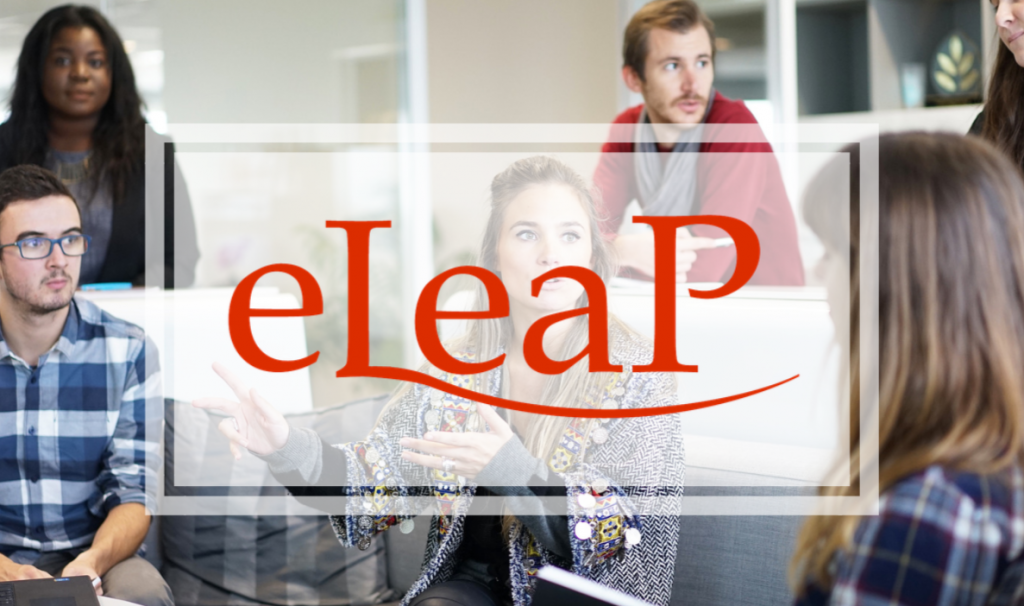
In one sense, the process of educating and re-skilling learners is the same everywhere. But numerous factors, such as mobile infrastructure, access to devices, government regulation, and even geography factor in. Don Weobong, CEO and founder of the learning management system eLeaP, has been working to optimize his product for a West African context.
This is the third article in a series on edtech startups working in West Africa.
“Data is a big deal. It’s a bottle neck,” Weobong said. “We recently signed a partnership with a firm in Ghana to deliver eLearning content to businesses as well as to individuals. To ensure that’s a success, we need to provide content in multiple formats. Satellite video is great whenever possible but it’s more realistic for people to learn via offline content.”
Optimizing eLeaP for Spotty Connections
One big factor currently in the works is switching from the SCORM standards implemented all the way back in the Clinton administration to Tin Can, also known as Experience API or xAPI.
“We need to be able to provide the content but also to track and report in non-connected environments,” Weobong said. “Tin Can has proven to be much more adept at that. When someone is watching an offline video or consuming offline content or absorbing offline content on a mobile device with limited connectivity, that information can still be pushed out. So that’s what we’re working on next.”
“I’m excited about deploying in Ghana and West Africa because that’s where the biggest growth in the learning space is. We take a lot for granted here because there are a lot more options. But in a lot of places in the world, there aren’t many options. So this is an opportunity for us to see if we can make a difference.”
A Tradition of Teaching
eLeaP is based in Louisville, KY, but Weobong grew up in Ghana and maintains connections to the region. Both his parents are educators and run a school.
 “Growing up, learning was something that we pretty much did as a family tradition. I didn’t start out trying to get into eLearning per se—I wanted to get into tech. It happened that when I was finishing up my MBA, I took on a project to build an eLearning platform, which is how eLeaP was born. It was an academic exercise. When I was in Bellarmine University, we used Blackboard. I didn’t quite like it very much and kept telling myself this is so convoluted and complicated to use. That was one of the reasons why I took on the project to build an eLearning system.”
“Growing up, learning was something that we pretty much did as a family tradition. I didn’t start out trying to get into eLearning per se—I wanted to get into tech. It happened that when I was finishing up my MBA, I took on a project to build an eLearning platform, which is how eLeaP was born. It was an academic exercise. When I was in Bellarmine University, we used Blackboard. I didn’t quite like it very much and kept telling myself this is so convoluted and complicated to use. That was one of the reasons why I took on the project to build an eLearning system.”
“When I built eLeaP, I was telling my dad about it. Growing up, I always said I was going to be a big business man or a lawyer or some other field apart from teaching. I was so excited when I was telling him about eLeaP and how I help people learn and train people and all that stuff and he goes ‘huh, really so—is that education?’ I said, ‘yeah! Education.’ And he said, ‘It sounds like you’re a teacher.’ And I said, Oh I know where you’re going with this.” So it is kind of full circle. Because what we do here at eLeaP is to help people learn—in a better way, we think, and provide more value.”
Okeke Vincent Chidozie, CEO and founder of DoviLearn (and the subject of the previous article in this series), spoke at length about the landscape of education in Nigeria. Weobong had a similar experience growing up in Ghana.
“I went to a business university called the Institute of Professional Studies. One of the courses I took there was Management Information Systems. In the whole university, we had three working desktops. One was reserved for professors only. The other one was broken 90% of the time. And so all of us had to go crowd around one machine.”
“It’s not easy to get real talent, especially when it comes to coding. There’s a real dearth of skilled workers. A lot of ideas just die on the vine because there’s not enough local talent to bring them to product stage. There’s a lot of opportunity there.”
Disclosure: Telania, the company that developed eLeaP, owns and operates eLearning Inside.









No Comments